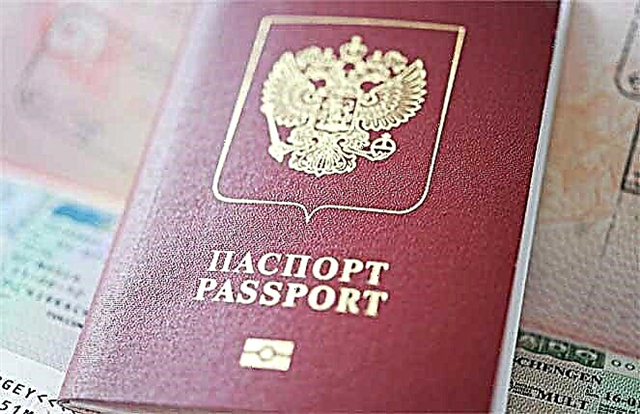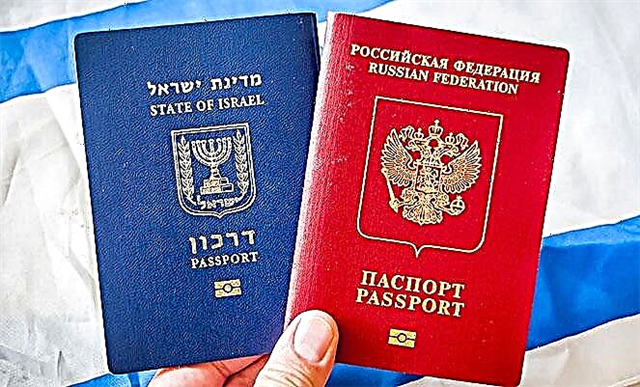Israeli citizenship is widely appreciated in many countries around the planet. At the same time, many ethnic Jews, due to the specifics of Israeli legislation and the country's migration policy, can obtain it in a simplified manner and even as a second citizenship. Among such applicants are Russian Jews: since the beginning of the 90s, the number of Jews living in Russia has decreased from 570 to 150 thousand people. Could they obtain dual citizenship of Russia and Israel?
What is dual citizenship
It is worth immediately distinguishing between the concepts of second and dual citizenship. By virtue of the international legal doctrine, bipatrism or multiple citizenship is the legal status of a person who has citizenship (and, therefore, a passport) to two or more countries, which, in turn, guarantee him the preservation of his civil rights and obligations. Moreover, each of these countries in the civil law relations arising between it and the bipatride considers such a person exclusively as its citizen.
Unlike multiple citizenship, dual citizenship is possible only if an international treaty is concluded between the two countries.
Such an agreement is a form of mutual recognition, when a bipatride is considered both as its own citizen and as a citizen of another country.
Due to the fact that such agreements between countries are achieved only in the presence of stable historical ties, they are a rarity in international legal practice. Portugal and Brazil, Italy and Argentina are among the few examples.
Bipatrism: Israel's View
It should be noted right away that Israel's approach to bipatrism is loyal. Thus, the basis of Israel's legislation on citizenship is the Citizenship Law, adopted by the Knesset in 1952. Israel's attitude towards bipatrism is set forth in Art. 14 of this law, the meaning of which is based on the fact that Israeli law initially equalizes the concepts of multiple and dual citizenship. It gives the right to dual citizenship to everyone who has acquired an Israeli passport, except for those who acquired it as a result of naturalization. We propose to immediately figure out the methods of obtaining citizenship.
How to get an Israeli passport
According to chapter 1 of the law, an Israeli passport is granted:
- Repatriation. Under the Law of Return, passed by the Knesset on July 5, 1950, all repatriates are recognized as Israeli citizens if they repatriated after the formation of the state. All Jews can repatriate to the country, who are such by virtue of being born from a Jewish mother and have not changed their religion or converted to Judaism since then. That is, the right to repatriation only for descent from a Jewish mother and belonging to the Jewish people is not granted - an important condition is the confession of Judaism. By the way, Germany also has a Jewish immigration program.
- Accommodation. All those who lived in Israel before the creation of such a state were recognized as citizens.
- By birth. All children born on the territory of the country, if at least one of their parents is a citizen of the country, or born outside of it, if one of the parents acquired citizenship by virtue of repatriation, residence in Israel or the provision of a passport, become Israeli citizens.
- By naturalization. Naturalize in Israel, according to Art. of the above 5 law, it is possible provided:
- permanent presence on the territory of the country for three years out of five preceding the direction of the application;
- having the right to permanent residence;
- desire to settle in the country (the presence of property, business, work on its territory);
- possession of "some knowledge of Hebrew" - a specific volume has not been established, but the volume that can be obtained in an ulpan seems to be sufficient;
- renouncing past citizenship or providing evidence that it has been terminated.

Who is eligible for bipatrism
Considering the listed methods of acquiring an Israeli passport, as well as alef art. 14 of the law, the only ones who must give up a second passport are newly minted Israelis who received Israeli documents as a result of naturalization. Everyone else who enters Israeli citizenship does not need to give up their previous citizenship - they have the right to keep a foreign passport.
It is worth noting that the law says absolutely nothing about the attitude of the legislator to his own citizens, who receive passports of other countries after acquiring Israeli citizenship. For example, having received it at birth in Israel and subsequently moved to Russia and received her passport.
However, given the fact that Art. 11 of the law defining the grounds for depriving an Israeli passport, there is no indication of dual citizenship, any sanctions cannot be applied to them. Exceptions are cases when an Israeli has illegally left for one of the countries established by the Law on the Prevention of Infiltration (hostile to Israel) - such an act is perceived as refusal of an Israeli passport.
In any case, according to Bet Art. 14 of the Law on Citizenship, Israelis who also have other citizenship, in terms of the application of the law, are considered exclusively as citizens of Israel. That is, the possibility of concluding international agreements on the mutual recognition of passports was not initially envisaged.
Thus, we can summarize: Israeli legislation allows bipatrism (calling it dual citizenship) to all except naturalized Israelis. And what do they think in the Russian Federation about this?
Russia's position
Russia adheres to similar views regarding bipatrism, directly providing for the possibility of obtaining a second passport in Art. 62 of the Constitution of the Russian Federation, at the same time specifying that at the same time Russian citizenship continues to operate. Article 6 of the Federal Law No. 62 of May 31, 2002, the Russian legislator distinguishes between the concepts of multiple and dual citizenship. Thus, he regards as Russians all bipatrides who have Russian passports at the same time, unless otherwise provided by the contractual framework between the countries. That is, dual citizenship is possible only if there is an agreement. And since such a document is valid only with Tajikistan, it is impossible to obtain dual citizenship Israel-Russia even theoretically.
This, however, does not deprive the citizens of these states of the opportunity to possess both Israeli and Russian documents. A striking example is the over 300 thousand Jews who left Russia and issued an Israeli passport through repatriation. All of them had the right to retain Russian citizenship, and since then most of them are bipatrides.
Change of citizenship
However, not everyone who decided to migrate from Russia to Israel is allowed to retain Russian citizenship. In particular, as already mentioned, everyone who wants to naturalize in Israel must abandon the previous legal status. That is, if a Russian wants to acquire an Israeli passport, but at the same time is not a Jew and does not have the right to acquire citizenship in any other way, except for naturalization, he will have to renounce Russian citizenship. Otherwise, he will not be able to acquire a new civil identity.
It is worth noting that Russian laws make it possible to renounce citizenship to Russia. In particular, according to Art.20 ФЗ № 62 dated 05/31/2002, withdrawal from it is possible on condition:
- absence of unfulfilled obligations to Russia;
- lack of criminal prosecution;
- obtaining a passport of another country or guarantees for its receipt.
You can learn more about the withdrawal procedure from the publication entitled “Renunciation of Russian Citizenship”.
Conclusion
In 2021, obtaining dual Russian-Israeli citizenship is impossible, since there is no corresponding treaty base between the countries. However, each of them does not interfere with bipatrism (with some exceptions) of their citizens, so they have the right to freely possess both Russian and Israeli passports. But even in this case, each of the states of nationality of the bipatrid will consider him exclusively as his own citizen.











